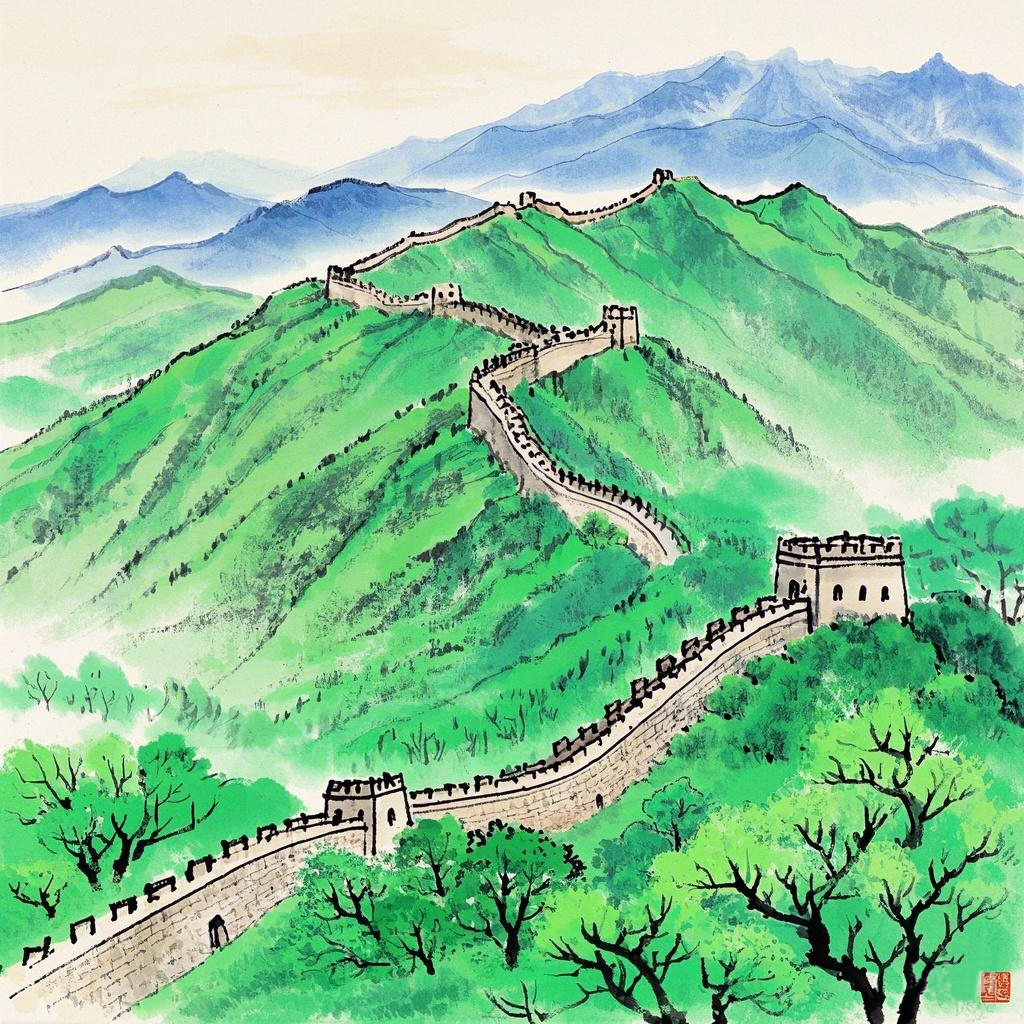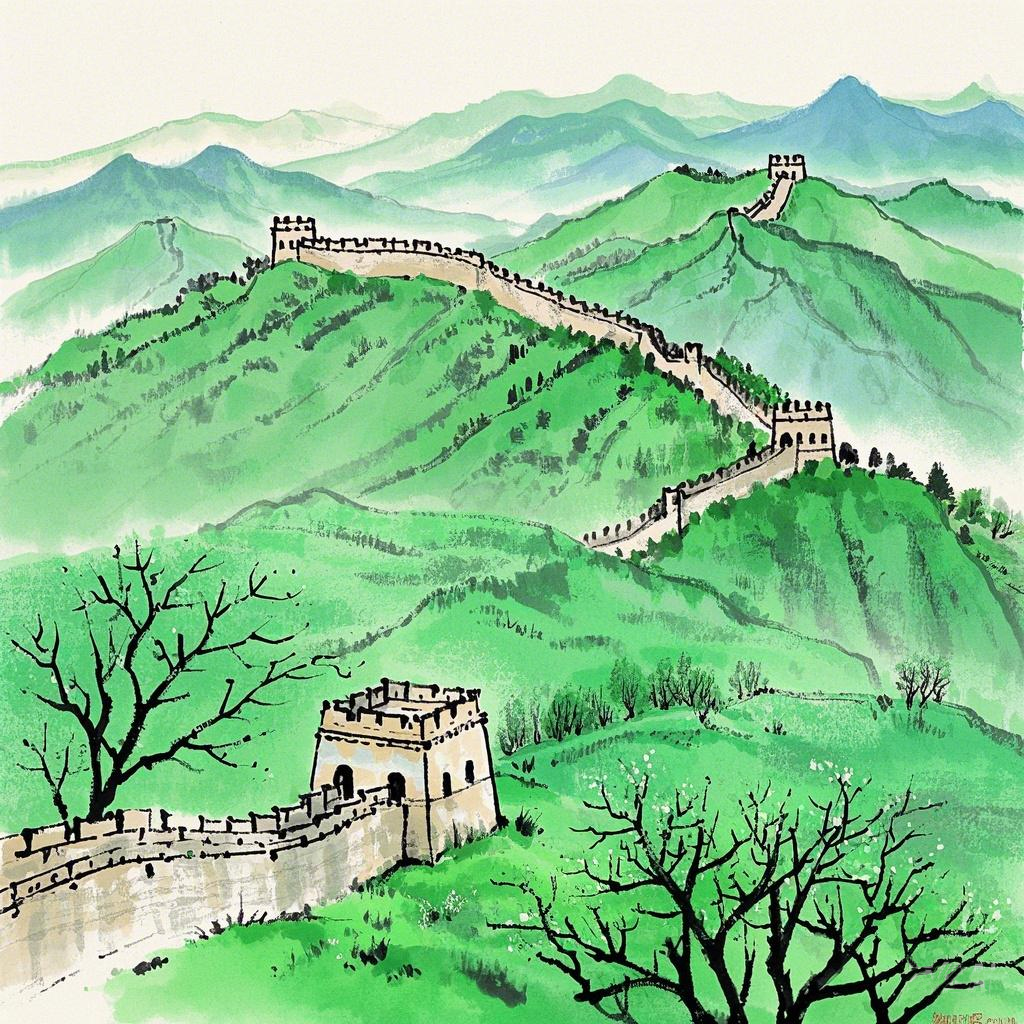
Many people think that Dan Dao (丹道, Daoist Alchemy) and Qi Gong (气功, Energy Work) are quite similar, almost equating Dan Dao with Qi Gong. For a period (around the 1980s), the concept of Qi Gong included Dan Dao. However, they are not the same!
In fact, Dan Dao and Qi Gong should be discussed separately as they have distinct differences. Let’s talk about these two fascinating topics: “Dan Dao” and “Qi Gong”.
The first difference is in their concepts. Dan Dao is a method of cultivation in Daoism aimed at achieving a state of unity between body and mind through internal refinement and external nourishment, as well as the dual cultivation of life and spirit. It emphasizes the balance of Yin and Yang and the interdependence of the Five Elements, pursuing an inner harmony and unity. Qi Gong, on the other hand, is a form of exercise that uses methods such as breath regulation, body adjustment, and mental focus to strengthen the body and regulate the state of mind. In simple terms, Dan Dao leans more towards spiritual cultivation, while Qi Gong focuses more on physical exercise.
The second difference lies in their purposes. The goal of Dan Dao is grander; it seeks to extend life, achieve immortality, and even reach a transcendent state. Qi Gong, however, primarily aims to strengthen the body, regulate the mind and body, and prevent and treat diseases. It serves more like a daily health assistant, helping us maintain health and vitality.

The third difference is in their cultivation methods. In terms of cultivation methods, Dan Dao and Qi Gong each have their strengths. Dan Dao emphasizes internal refinement, such as meditation, contemplation, and alchemical practices, all of which ultimately aim to enter a state of primordial forgetfulness. Importantly, Dan Dao requires the opening of the Xuan Guan (玄关, Mysterious Pass) to enter the primordial state, which requires time and patience; it is not something that can yield results overnight! Qi Gong, however, focuses more on external refinement, belonging to the acquired methods, paying more attention to adjusting intention, breath, and body, with practices like Tai Chi (太极拳, Tai Chi Chuan), Bagua Zhang (八卦掌, Eight Trigram Palm), and Ba Duan Jin (八段锦, Eight Pieces of Brocade) categorized as Qi Gong. These movements are graceful and gentle, capable of both exercising the body and cultivating the spirit.
Most importantly, their distinctions lie in the fact that Dan Dao must enter a state of “chaos,” while Qi Gong, although it also emphasizes tranquility, cultivates the acquired “essence, qi, and spirit,” whereas Dan Dao cultivates the innate “essence, qi, and spirit.” The foundation is established from the acquired to enter the primordial state, which must start from the acquired.
The fourth difference is theoretical. Dan Dao values the reverse, while Qi Gong follows the natural order. Dan Dao emphasizes the reverse rather than the natural order, while Qi Gong follows the natural way of humanity.
Daoist philosophy advocates “valuing the reverse over the natural order,” asserting that alchemy can be practiced, metals can be refined, immortals can be learned from, and the world can be transcended, proposing the slogan “My fate is in my hands, not in heaven.” The core theory of internal alchemy is to “return to the root and return to the source,” challenging the second law of thermodynamics by simulating the laws of reversal from the reverse direction. Chen Zhixu noted in the Can Tong Qi (参同契, The Agreement of Similarity) that “the division of the Taiji (太极, Supreme Ultimate) has the innate and the acquired. What is innate? The metaphysical is called Dao, entering the void from existence. What is acquired? The physical is called the vessel, entering existence from the void.” “People only follow the acquired path, thus life and death cycle endlessly. The sage adeptly reverses the innate path, thus can achieve knowledge, rectify the heart, cultivate the self, and endure long without fading.” “Following Yin and Yang brings life to beings; reversing Yin and Yang must lead to the creation of the elixir, this is the principle.” The Dan Jing (丹经, Alchemical Canon) also states, “Following is humanity, reversing is immortality, it is merely a matter of inversion in between.” Therefore, we refer to the principle of internal alchemy as “following leads to humanity, reversing leads to immortality.”
Qi Gong is a traditional Chinese method of health preservation, wellness, and disease prevention. It employs adjustments of breathing, body movements, and mental focus (调息, adjusting breath; 调身, adjusting body; 调心, adjusting mind) to strengthen the body, prevent and treat diseases, enhance longevity, and develop potential through mind-body exercises.
Qi Gong has a long history in China, and its content was traditionally referred to as Tu Na (吐呐, Breathing Techniques), Xing Qi (行气, Qi Circulation), Bu Qi (布气, Qi Distribution), Fu Qi (服气, Qi Absorption), Dao Yin (导引, Guiding and Pulling), Lian Dan (炼丹, Alchemy), Xiu Dao (修道, Cultivation), and Zuò Chán (坐禅, Sitting Meditation), among others. The classical theory of Qi Gong is based on the health and wellness principles of Traditional Chinese Medicine (TCM), which have been passed down since ancient times.

In summary, although Dan Dao and Qi Gong differ in concepts, purposes, and methods, they share a common goal: the pursuit of harmony and health for the body and mind. Regardless of which cultivation method you choose, persistence is key, and time will provide you with the answers!


Previous Recommendations
-
Xuan Guan (玄关, Mysterious Pass): The Mysterious Passage Connecting Innate and Acquired
-
Qi Gong Exercises: Helping the Elderly Combat Aging and Disease
-
Yu Ren Zhuang (玉人桩, Jade Person Posture) – A Posture in Accord with the Dao
-
Yi Quan Standing Posture: Easy Health Preservation Without Running or Jumping!
-
Chen Ni Wan (陈泥丸, Chen’s Mud Pill) – A Unique Revelation of the Path of Reversal!
-
Why Are 80% of People Controlled by Desire? Do You Know the 3 Key Factors?
If you find this article helpful, please give it a thumbs up, a look, and share it!
If you want to receive updates promptly, you can also give me a star mark ⭐~
Thank you for reading my article, and see you next time.

